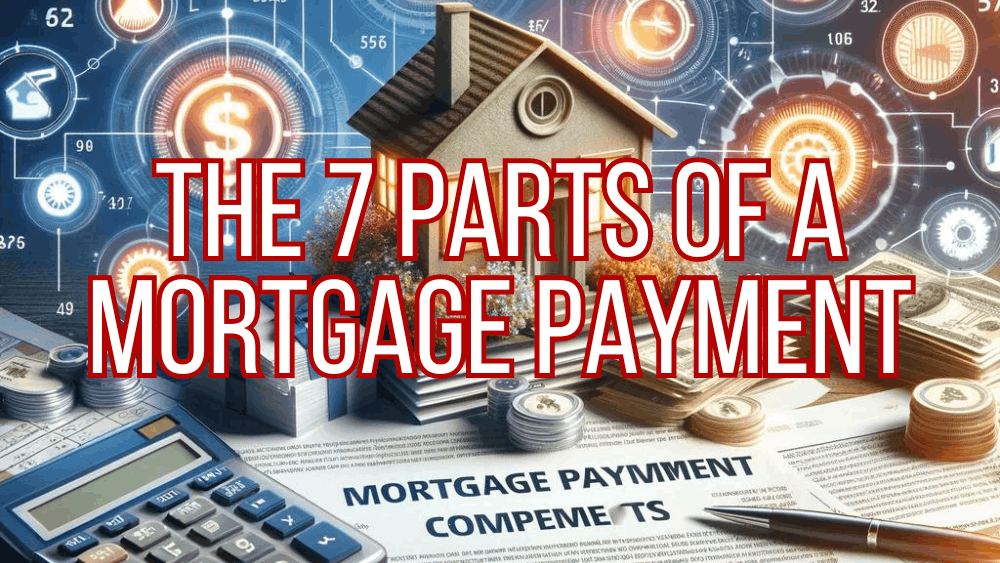Mastering Your Mortgage: A Comprehensive Guide to Understanding Your Payment Components
Navigating the landscape of purchasing your first home in Denver, Colorado, can be both exhilarating and daunting. Understanding the components that make up a mortgage payment is crucial in making informed decisions that align with your financial goals and lifestyle. A typical mortgage payment includes several costs: principal, interest, escrow, taxes, homeowners insurance, mortgage insurance, and homeowners association (HOA) or condominium fees. Let’s dive deep into each of these components to demystify the process and empower you as you step into the realm of homeownership.
1. Principal: Your Foundation for Homeownership
The principal is the backbone of your mortgage payment, representing the amount you borrow to purchase your Denver home. This does not stay static; with every payment you make, a portion goes towards reducing the principal, gradually decreasing the amount you owe. The initial size of your down payment directly impacts the principal – the more you can pay upfront, the less you’ll need to borrow. This not only reduces your borrowing amount but can also affect your ability to qualify for a mortgage, with lenders considering your monthly income and other debts. To gauge how much you might be able to afford, using a mortgage affordability calculator becomes an invaluable tool, offering insights into the potential loan amount based on your financial landscape.
2. Interest: The Cost of Borrowing
Interest on your mortgage is the price you pay for borrowing money, calculated as a percentage of the principal. It’s a crucial factor in determining the total cost of your home over the life of the loan. The interest rate you secure can significantly influence your monthly payments and overall interest paid. Various factors, including market conditions and your credit score, play roles in determining your interest rate. A higher credit score can be a ticket to obtaining lower rates, highlighting the importance of maintaining a good credit history. Understanding how interest impacts your mortgage and exploring ways to secure the best rate are essential steps in your homebuying journey.
3. Escrow: Simplifying Annual Costs
An escrow account, often a requirement by lenders, simplifies the management of property taxes and insurance premiums by dividing these annual costs into manageable monthly payments. This account acts as a holding area, with your lender assuming the responsibility of disbursing payments for taxes and insurance when due. For many homeowners, escrow payments provide peace of mind, eliminating the burden of large lump-sum payments and ensuring these critical expenses are paid on time.
4. Taxes: Contributing to Your Community
Real estate taxes, or property taxes, are part of your mortgage payment, representing your contribution to the various public services provided by your local government. These taxes are estimated annually and divided into monthly amounts, collected through your escrow account. The lender then pays your property taxes on your behalf, ensuring you contribute to your community’s infrastructure, education, and emergency services without the hassle of remembering due dates.
5. Homeowners Insurance: Protecting Your Investment
Homeowners insurance safeguards you and your lender against potential losses from unforeseen circumstances, such as fire or flood damage to your property, as well as liability for injuries occurring on your premises. Including a portion of your homeowners insurance premium in your monthly mortgage payment, similar to property taxes, means the lender will use escrow funds to pay your insurance premiums, ensuring continuous coverage and protection for your home.
6. Mortgage Insurance: A Safety Net for Your Lender
For down payments less than 20%, lenders typically require private mortgage insurance (PMI) as an added layer of protection in case of default on the loan. This insurance is integrated into your monthly payments, with a portion set aside in your escrow account to cover the annual premium. While PMI adds to your monthly expenses, it enables you to pursue homeownership in Denver with a smaller down payment, opening doors to purchasing a home sooner than you might have thought possible.
7. HOA Fees: Enhancing Your Living Experience
Living in a community with a homeowners association or in a condominium comes with additional fees to cover services like common area maintenance, trash and snow removal, and the enforcement of community standards. These fees are essential for ensuring the quality and value of your living environment but are separate from your mortgage payment. Understanding the role and cost of HOA fees is crucial when considering properties in managed communities.
As you embark on your homebuying journey in Denver, understanding these mortgage components equips you with the knowledge to navigate the financial aspects of purchasing your dream home. With a clear grasp of each element, you can make choices that align with your financial situation and homeownership goals.
Navigating the Denver real estate market as a first-time homebuyer presents a unique set of challenges and opportunities. By understanding the nuances of your mortgage payment, you are better positioned to make informed decisions that pave the way to successful homeownership. Whether you’re drawn to the bustling city life or the serene suburbs of Denver, the dream of owning a home in this vibrant community is within reach. Remember, the key to a smooth homebuying experience lies in.


